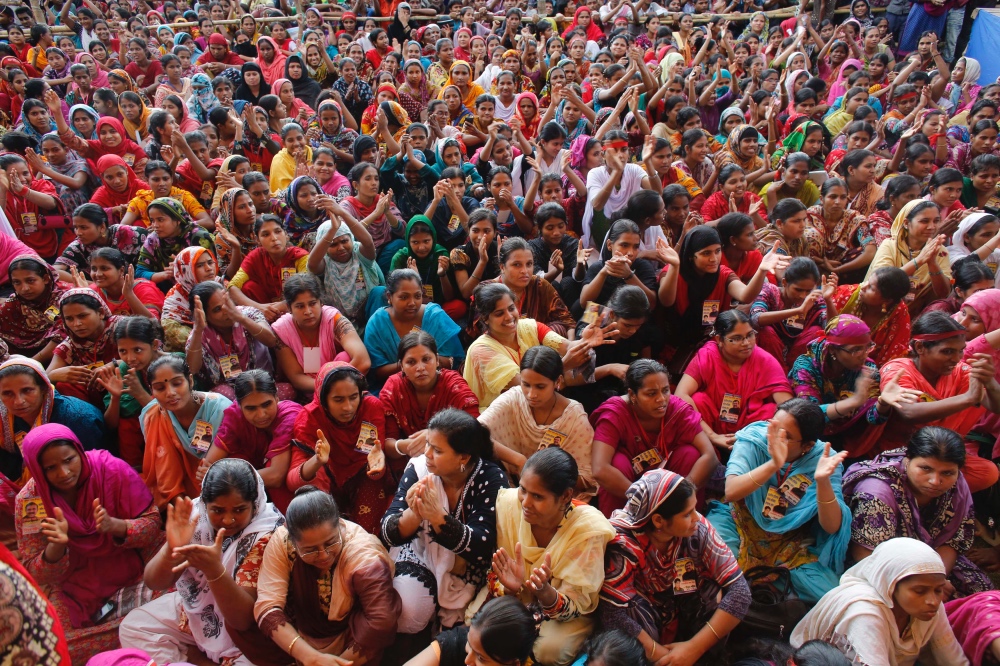Dhaka, Bangladesh
Thomson Reuters Foundation
A new film offering a glimpse into the lives of garment workers in Bangladesh is challenging stereotypes about women by showing them driving the economy and fighting for justice in factories.
Made in Bangladesh is based on the life of Daliya Akter, a garment worker who escaped child marriage and went on to lead a trade union fighting for workers’ rights in the capital Dhaka.

Garment workers listen to speakers during a rally demanding an increase to their minimum wage in Dhaka on 21st September, 2013. PICTURE: Reuters/Andrew Biraj
Akter’s story – securing pay for her co-workers despite a concerned husband and threats from her bosses – puts a rare spotlight on female triumph over adversity in conservative Bangladesh, the world’s second-largest garment exporter.
Nearly 80 per cent of the four million people working in the sector that produces clothes for companies including H&M and NEXT are women who work long hours for minimal pay.
Still, stereotypes of women workers as passive and powerless persist.
“There is a narrative that garment workers are always oppressed. But while working on the film I realised that these women fight back strongly and are empowered,” director Rubaiyat Hossain told the Thomson Reuters Foundation by phone.
“These workers…need to be heard. It is because of them that our economy is improving and we have to acknowledge them.”
Bangladesh’s apparel industry has come under pressure to improve factory conditions and workers’ rights, particularly after the collapse of Rana Plaza complex in Bangladesh more than six years ago, when 1,136 garment workers were killed.
The disaster led to more factory inspections, the closing down of dozens of factories deemed unsafe, and government labour reforms.
But low wages and a declining number of female union leaders remain key challenges.
‘Made in Bangladesh’ premiered in the United States on 6th December and Akter, who is played by actor Rikita Shimu, said she hopes the film will encourage garment workers to speak up when it screens in Bangladesh next year.
“There are a lot more unions today than in 2013 but there still are workers who are afraid to voice their concerns and the film will help them,” said Akter.
Akter began working with internationally acclaimed film-maker Rubaiyat Hossain in 2016 after the factory she worked at closed after losing international contracts.
Akter later joined the thousands of Bangladeshi workers who travel to the Middle East each year in search of work, arriving in Jordan’s port city of Aqaba in 2018 to work as a machine operator in a factory producing trousers and skirts.
She returned to Bangladesh months later after falling ill.
Despite her trials, Akter plans to continue fighting for workers’ rights.
“I don’t know for how long I will live, but I know that I will fight for workers’ rights till my last breath,” she said.






